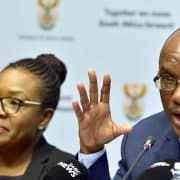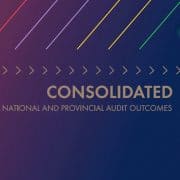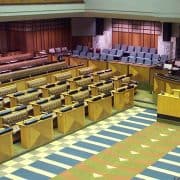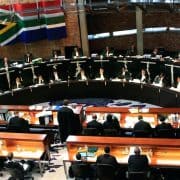|
Getting your Trinity Audio player ready...
|
The long-awaited vote of no confidence – the eighth such effort – against President Jacob Zuma takes place later today under a secret ballot. This follows a Constitutional Court ruling in June that set aside Speaker Baleka Mbete’s initial reasons for not agreeing to a secret ballot.
Mbete said her decision was taken with the best interests of all South Africans in mind. “I have considered the environment and heard voices expressing doubt in the integrity and values of our 20-year-old Constitution. We therefore have to use this opportunity to show responsiveness to our people. This decision is, therefore, in the best interest of the country.
“I understand and accept that a motion of no confidence in the president is a very important matter; a potent tool towards holding the president to account; one connected to the foundational values of accountability and responsiveness to the needs of the people.”
Opposition parties were satisfied with the pronouncement. “ANC MPs now have no excuse. They must use their vote tomorrow to stand up to grand corruption and vote to remove Jacob Zuma as President,” said Mmusi Maimane, leader of the main opposition party, the DA.
EFF leader Julius Malema said they would lobby ANC members right until the last minute, because it was important to do so. “We’ve fought for all members, not only of the ANC, including other opposition parties who’ve been intimidating their members and forcing them to vote for President Zuma.”
UDM leader Bantu Holomisa said: “It’s time for the public representatives to be honest to their oath of office and South Africa, irrespective of a political party one comes from.” It was Holomisa who took the fight for a secret ballot to the Constitutional Court.
Elected representatives have a non-negotiable duty to their constituents
An elected public representative fails their community if they do not prioritise service delivery and the protection of basic rights. They are expected to stay true to their mandate of working in the best interest of the public at all times, or be willing to step down to make way for others who can. This rings true whether you are a ward councillor with a constituency of a few thousand people, or the sitting president of the country. What is in the public interest is foremost in your priority list and should remain there until you are no longer in office.
Shortly after the local government elections of last year, Corruption Watch received a report from community members in one of the country’s largest cities detailing fraud allegations against a ward councillor who had taken money from them with the promise of securing housing.
For several hours they sat with Corruption Watch staff, detailing incidents during which the councillor had displayed dishonesty and unethical behaviour. The incidents, they said, happened prior to the councillor having been elected to the all-important public office, but were nonetheless disruptive. They had been given the impression that they were paying deposits for houses, but learned only later that this was not the case. To their surprise, the face of the alleged fraudster was plastered on street posters ahead the elections, as if nothing had happened. Police confirmed the opening, and later withdrawal, of a case against the councillor, on the matter. Something fishy was clearly going on. Corruption Watch, said the complainants, was their last hope in resolving the issue.
In its engagements with the councillor implicated in the matter, Corruption Watch heard that a conspiracy had been built up against the councillor, most probably by those who lost out in the race to lead the ward. To this end, Corruption Watch has not had confirmation from the councillor of whether the fraud allegations were true.
The councillor’s non-commitment to what is in the public interest is indeed a worrying dynamic in the case. Whether the conspiracy theory is true or not, the public that voted for the party in the ward has to live with the consequence of a possibly conflicted representative with questionable principles.
National Assembly is constitutionally mandated to hold executive to account
Almost a year later, a call is being made by members of the South African community for elected representatives in the country’s legislature to check their priority list for that all-important duty: that of public interest. Once again it is a matter that has the country divided in opinion.
In an open letter to the 400 MPs in the National Assembly, Parliament Watch – a formation of which Corruption Watch is a part – appeals to them to put the country first and vote with their conscience by giving substance to Section 55(2) of the Constitution, which states that the National Assembly must provide for mechanisms :
- to ensure that all executive organs of state in the national sphere of government are accountable to it; and
- to maintain oversight of
- the exercise of national executive authority, including the implementation of legislation; and
- any organ of state.
“Vote to address state capture. Vote to stop the greed of the few that worsens the needs of the many,” the open letter urges. “Vote to ensure that presidential political appointees are fit and proper and embody a commitment to public service. Vote to ensure that those that assume public office are there to serve everyone and not the narrow interests of a politically connected few.”
Parliament Watch has 35 other signatories.
The DA, which also brought forward the motion, rallied members of the public to sign a petition, and recently delivered this at the doorstep of Deputy President Cyril Ramaphosa.
“Mr Ramaphosa, do the right thing,” said Mmusi Maimane. “While the removal of Jacob Zuma will not solve every problem in our nation, it would be the beginning of a national rebuilding project that is urgently required. The DA’s vote will be no secret – we will vote to fire Jacob Zuma tomorrow” he said soon after Mbete made her announcement.








